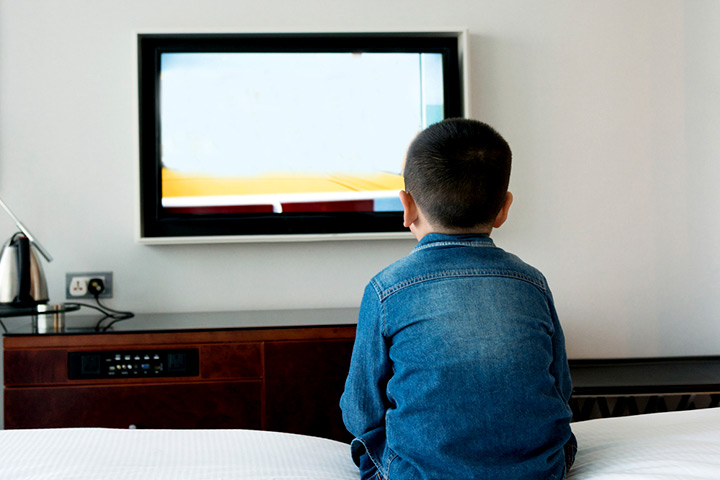
Saturday 03-07-2021 – Television viewing
My son, Adit is 12 years old and studies in the 7th grade. He watches television for at least 3-4 hours per day. One day it is a movie, the other day it is a serial, which he must watch and the next day it is the music channel. He is not interested in any other recreational activity and whines like an addict if the television is switched off. Under the influence of the advertisements and the life style shown in the programmes, his demands have also increased and he speaks as if he is in a serial himself. I am concerned about his attitude and the consequences of watching so much television. I never watched as much television in a week as he watches in a day. I am also concerned whether all this violence will influence him also.
Due to the influx of cable television and channels that show programmes round the clock, discipline about watching television is becoming an important issue. The chief concern has been about the influence of so much violence, crime and sex. There is also the question of the effect on schoolwork, homework and the reading of good books. Much on the air is unwholesome for certain children. A cruel youth might pick up an ingenious or fiendish idea from something seen on the television. However, a child who was anywhere near normal to start with might not be turned into a scoundrel by any number of hours of viewing or reading. The fundamental rule is that parents should set the standards, keep track and stick to their guns. A child acquires his basic standards from his parents. If they are decent people and love him, he loves them deeply, too and patterns himself after him. In this way, he acquires a conscience, which will not let him get into serious trouble later.
On the other hand, even though children may not become bad by watching too much violence, it may lower their standards somewhat and give them a poor impression of humanity. If you are keeping track of what is being viewed, and show your concern by ruling out certain programmes and scripts, Adit will be reminded of what standards he is expected to have even if he continues to peek at them. If you show no disapproval, he will feel none either. Parents who have high standards for their children feel that all the violence and vulgarity is bad and they do not like the idea of their children sitting for hours and passively accepting the environment instead of inventing their own play, preferably outdoors. However in view of the fact that your children crave television and that most other children are allowed to watch to their heart’s content, you might not know where to set limits. One day when you are self confident, you may be strict, and the next, when you have less conviction and are feeling more guilt, you may be lenient. Your child notices hesitancy, guilt and vacillation instantly, and this encourages him to argue and push. You might be dissatisfied with some of the programs that Adit is viewing. But every time you try to rule out a certain one, or to put a limit on the total viewing time per day, he argues indignantly: it is the best program of all; all his friends are allowed to see it; the other kids can watch as much as they want to; why do his parents have to be the only mean ones? Strong-minded parents are able to stand up to this kind of pressure and stick to their rules. Others have wilted under the heat of their children’s reproaches. They have given in right away; or they have relaxed their vigilance after a couple of days, half suspected that the forbidden program was being viewed again but done nothing about it. This is so because there are no traditions or convictions to guide you. You get conflicting reports about what other parents are doing. You have opinions, but do not feel sure. You try to make reasonable rules. Then when he protests violently, you vacillate. He senses your uncertainty and redoubles his arguments. In order to tackle Adit, the first thing is to limit television time to what you think is reasonable. You also have to show him alternative time for recreational activities. Here you will have to become a model and take part in those activities yourself. If it is done consistently, he will be able to arouse an interest away from television.



